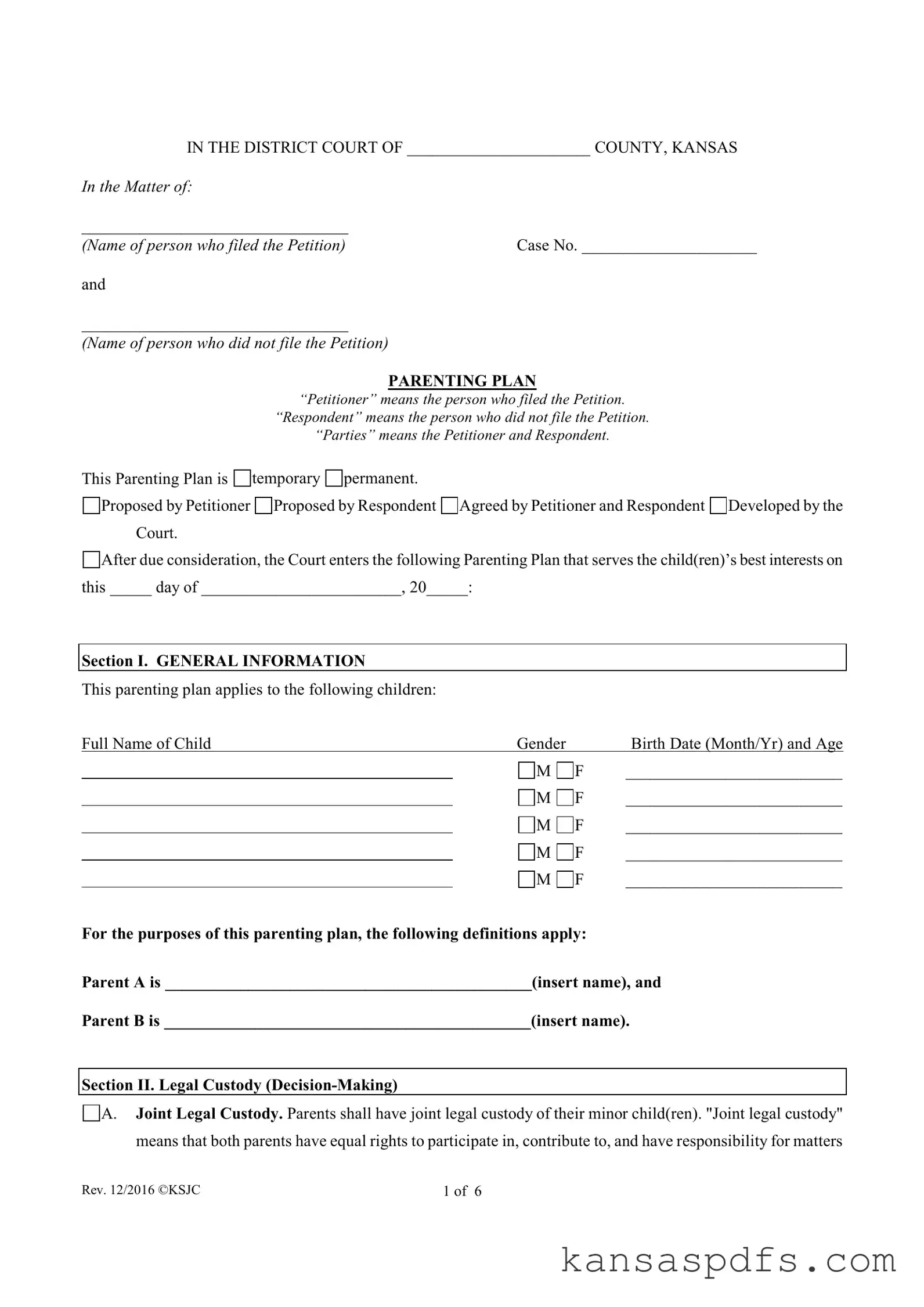Kansas Parenting Plan PDF Form
The Kansas Parenting Plan form is a vital document used in the state of Kansas to outline the custodial arrangements and parenting time schedules for children after a separation or divorce. It serves to establish both parents' rights and responsibilities towards their children and aims to ensure the child's best interests are met. Start filling out your Kansas Parenting Plan form by clicking the button below.
Get My Form Now

Kansas Parenting Plan PDF Form
Get My Form Now

Get My Form Now
or
Free PDF
Finish this form without wasting time
Finish your Kansas Parenting Plan online with quick edits and instant download.



 am
am 
 pm ending at ______
pm ending at ______
 am
am 
 pm as follows:
pm as follows:
 am
am 
 pm ending at ______
pm ending at ______
 am
am 
 pm as follows:
pm as follows:



 Parent B
Parent B 
 Other
Other